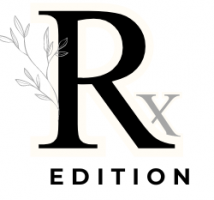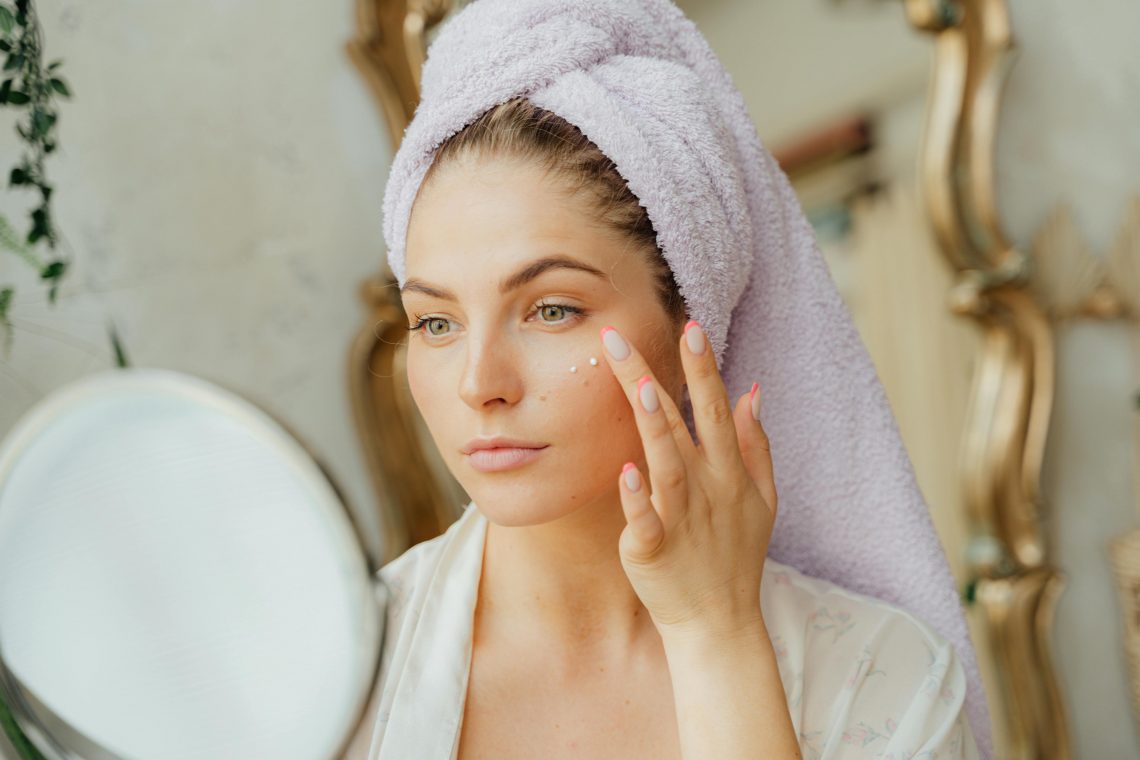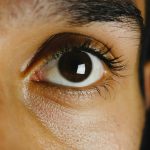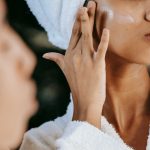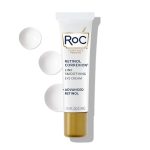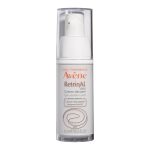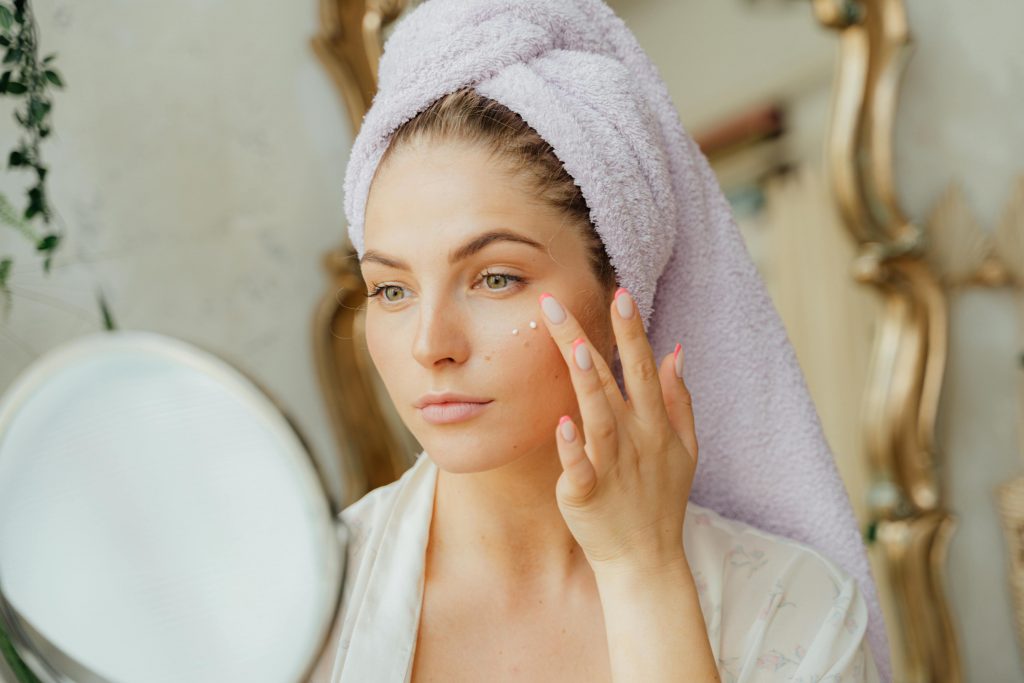
Table of Contents
The Ultimate Guide to Using Retinol for the Eyes
You probably already know all about the benefits of retinol. If not, check out my deep dive into the wonders of this skincare super-ingredient here. Today, let’s zoom in on a very specific application: the use of retinol for the eye areas.
As we get older, one of the first signs of aging is reflected in our eyes. This can manifest as fine lines, wrinkles, crow’s feet, dark circles, thin skin, puffiness, under-eye bags, sagging skin, volume loss, and texture changes. While many products target these issues, retinol stands out as a versatile and effective ingredient for treating various under-eye problems.
However, the skin around the eyes is incredibly thin and sensitive, and retinols come with certain side effects – so it’s crucial to understand how to use it and what to look for in these products.
The Benefits of Retinol Eye Creams
Here’s a quick overview of the benefits of retinol. These apply not only to the skin around your eyes but also to the overall skin on your body.
- Fine Lines and Wrinkles: Retinol increases cell turnover, which helps smooth the skin and diminish the depth of wrinkles over time.
- Collagen Boost: Retinol boosts collagen production, a protein that provides structure and elasticity to the skin. As we age, collagen production decreases, leading to wrinkles and fine lines. By boosting collagen, retinol helps maintain youthful skin.
- Dark Circles: Retinol can thicken the skin and improve its texture, reducing the visibility of dark circles.
- Hyperpigmentation: Retinol promotes faster cell turnover and shedding of pigmented cells, helping fade hyperpigmentation and even out skin tone.
- Overall Texture and Elasticity: Retinol improves the overall texture and elasticity of the skin, making it smoother and more resilient. This can enhance the appearance of the under-eye area by making it look more youthful and refreshed.
Clinical Studies Supporting the Benefits of Retinol
For a more comprehensive list of all the clinical studies that show the anti-aging benefits of retinol, see my other post here.
For the TL;DR version, I’ve highlighted a some key references below.
- Anti-Aging Effects: Here is a nice recent review of the effects of retinol significantly improved the appearance of fine lines, wrinkles, and skin texture by promoting collagen synthesis and increasing cell turnover.
- There are many studies like this one, which assessed the effects of retinol serum at 0.3% and 0.5% concentrations on facial skin. Over 12 weeks, 37 participants applied the serum, resulting in reduced hyperpigmentation, unevenness, and wrinkles. The study concluded that retinol improves skin tone, elasticity, and moisture, demonstrating its effectiveness and safety.
Can You Use Retinol Around the Eyes?
- Using retinol anywhere on your skin can lead to irritation, redness, and dryness, especially when first introduced.
- Studies have shown that while retinoids are effective, they can cause significant irritation if not used correctly. This is particularly true for the delicate under-eye area, which is more susceptible to these side effects. Retinoids can also increase photosensitivity, making sun protection crucial when using these products.
- Additionally, other research of retinol for ocular (eye) conditions show the possible risk of eye irritation or redness, especially when retinoids are applied directly to the eye at high doses.
- Retinoids have also been shown to increase risk of dry eyes, though this is more common when taking oral retinoids (e.g. Accutane)
How to Use Retinol Eye Creams Safely

So yes, while you can and should use retinol to treat aging issues around eye, here are some things to consider:
- Start with Low Concentrations: Begin with a lower concentration of retinol and gradually increase it as your skin builds tolerance. This helps reduce the risk of irritation and dryness.
- Moisturize Adequately: Use a good moisturizer before and after applying retinol to help maintain skin hydration and support the skin barrier. This can significantly reduce the likelihood of dryness and peeling.
- Use Retinol at Night: Applying retinol at night minimizes its photosensitizing effects. Ensure you use a broad-spectrum sunscreen during the day to protect your skin from UV damage.
- Avoid Overuse: Start with applying retinol every other night and gradually increase the frequency as your skin adjusts. This can help prevent overwhelming the sensitive under-eye skin.
- Patch Testing: Before applying retinol to the under-eye area, perform a patch test on a less sensitive part of your face to ensure you do not have an adverse reaction.
Best Retinol Eye Cream Recommendations
Retinol is a potent ingredient for addressing various under-eye issues, including fine lines, wrinkles, dark circles, hyperpigmentation, and overall skin texture. By incorporating retinol into your skincare routine with caution and proper guidance, you can achieve a more youthful and rejuvenated under-eye appearance. Always consult with a dermatologist to tailor the use of retinol to your specific skin needs and ensure its safe application.
Below are a couple of options to consider!
RoC Retinol Correxion Under Eye Cream
I’ve been using this product nightly for the past few years and have not experienced any irritation. It applies smoothly, and a small amount goes a long way. In fact, I’ve been using the same small tube for at least a year! I do not currently have a lot of under-eye wrinkles so haven’t seen a significant difference, but I do believe this cream is preventing the wrinkles in the long run.
In their clinical trials (did not specify how many participants), it claims that within 12 weeks, this product visibly reduced wrinkles and dark circles by 90% and crow’s feet by 50%. It also evens out dark circles and reduces puffiness in just 4 weeks.
Avène Eau Thermale - RetrinAL EYES Cream
While I have not used this specific eye product, I have used the full-face version and really like it. You can tell it works immediately because your skin tightens as soon as you apply it. It’s more potent than retinol because it doesn’t need that extra conversion step! It also contains hyaluronic acid, which helps prevent dryness and irritation around the sensitive eye area. While it’s pricey, knowing how well the other product works, I would definitely give this a try.
As an Amazon affiliate, I may earn compensation from qualifying purchases.
